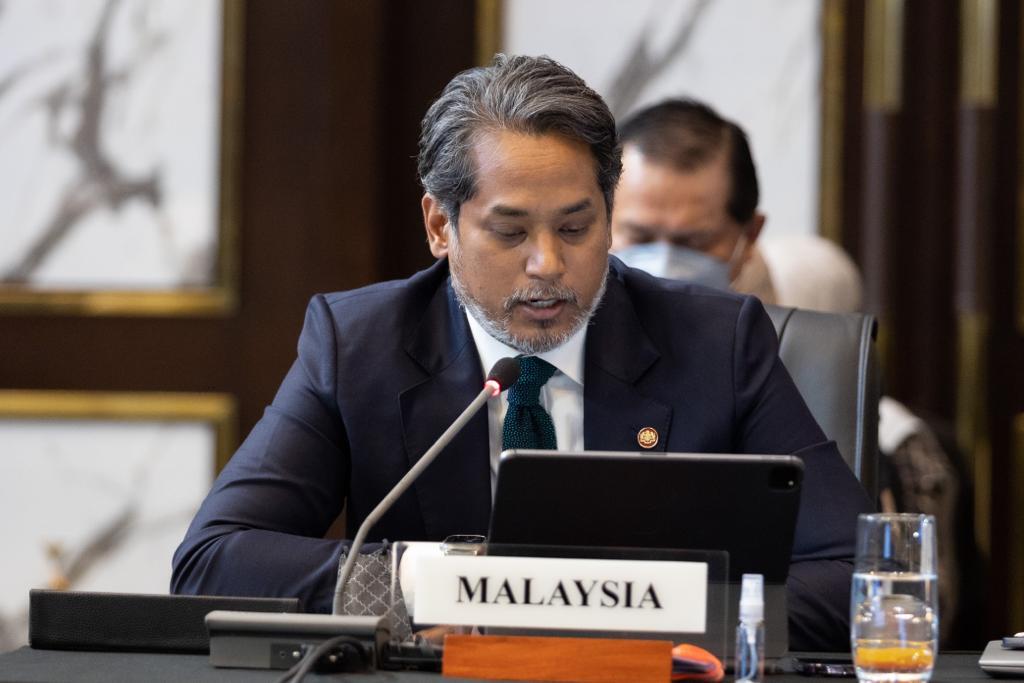KUALA LUMPUR, Oct 25 – Caretaker Health Minister Khairy Jamaluddin today reiterated the Ministry of Health’s (MOH) commitment to impose a generational ban on smoking and vaping despite pushback from several lawmakers and harm reduction groups.
Khairy said Malaysia is shifting its focus to intensify non-communicable diseases (NCDs) prevention as the country faces a double burden of health issues related to the usage of conventional and electronic cigarettes or vape.
“The government has put forth a new Control of Tobacco Product and Smoking Bill called the Generational End Game that will prohibit the sale and usage of all types of smoking products to our generation born from 2007 onwards.
“Despite the pushback from some lawmakers and the tobacco industry, we are determined that our vision for a tobacco-free generation will not waver,” Khairy said in an intervention note at the World Health Organization’s (WHO) 73rd Western Pacific Regional Committee Meeting in Manila, Philippines today.
Khairy failed to table the tobacco bill for second reading and debate in the last Dewan Rakyat meeting before Parliament was dissolved last October 10. In the previous July Parliament meeting, MPs across the aisle had raised concern about excessive enforcement powers under the bill and constitutional issues with the GEG.
The health minister was also recently criticised for using a swear word in dismissing the use of vape as a less harmful alternative to smoked tobacco.
At the launch of the MOH’s clinical practice guidelines on the management of e-cigarette or vaping use-associated lung injury (Evali) last week, Khairy said promoting vape as tobacco harm reduction for minors was “BS” because “they are not supposed to be smoking in the first place”.
Khairy was responding to the Malaysia Society for Harm Reduction (MSHR) that said the government’s proposed generational end game (GEG) should not be incorporated into the Control of Tobacco Product and Smoking Bill 2022, until it is reviewed and revised with scientifically backed harm reduction principles, such as allowing the use of e-cigarettes or vape as an alternative to smoked tobacco like cigarettes.
Meanwhile, in the same intervention, Khairy said Malaysia is also drawn towards transforming the nation to be more inclined towards health-seeking behaviour.
“Most people wait until they are very unwell before actively seeking care from the doctor. We need to evolve from sick care to health care and wellness to prevent these chronic illnesses stemming from unhealthy lifestyles,” Khairy said.
“We know that health is dependent on many factors outside the ambit of health care, and that is when we are reminded of the social determinants of health.
“We advocate for the shift from a disease-oriented model to a person-centred wellness approach that involves the entire government and society working together and this is embedded in the Health White Paper for Malaysia health care reform planning.
“Health care cannot succeed in a silo. We must create socioeconomic conditions that will enable people to remain healthy – from poverty, education, housing, nutrition, planetary health and much more. This call goes hand in hand with our efforts to achieve the Sustainable Development Goals by 2030,” Khairy said.
Behavioural science has been an integral part of the region’s success story in controlling the Covid-19 virus and minimising the disease burden, Khairy said.
Hence, Malaysia will propose a resolution on “Behavioural Science for Better Health” at the upcoming 152nd Session of the WHO Executive Board in January 2023 and the 76th World Health Assembly in May 2023.
“We call on the member states to support this resolution,” Khairy said.
Malaysia also lauded the WHO on the release of the information document on Workplace Culture and Organizational Change in the WHO Western Pacific region.
Khairy said Malaysia had established the Healthcare Work Culture Improvement Task Force (HWCITF), to ensure a supportive and safe workplace, in which “People First, Respect, Integrity, Duty of Care and Excellence” (PRIDE) was adopted as the core value of the initiative.
“We are policymakers in health care where our duty of care to patients is paramount. It is imperative this duty is extended to all our staff who provide that duty of care by ensuring they are valued and respected and there is no place for any form of harassment,” Khairy said.
The HWCITF – formed as an independent committee to review the work culture in the health care profession in MOH in the aftermath of a Penang Hospital houseman’s death last April – in a report issued in August confirmed incidents of burnout, bullying, and a “less healthy work culture” at the ministry.








